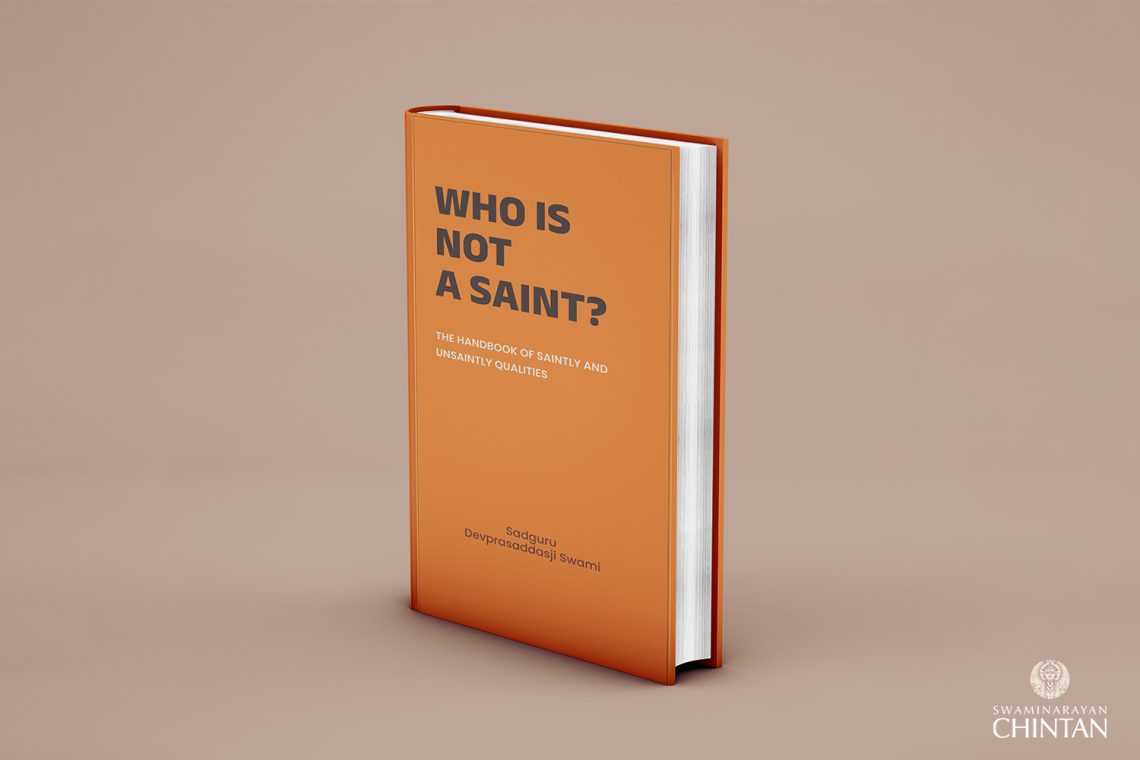A saint’s life wouldn’t shine without detachment.
A saint without detachment is like a householder. The only difference between a householder and a saint without detachment is their external appearance. In fact, a saint without detachment is worse than a householder. How?
A householder is legally permitted to possess worldly things and have worldly desires whereas a saint is strictly not permitted to have a single worldly possession or have a single worldly desire.
In Vachanamrut-10 of Kariyani chapter, Shreeji Maharaj has said that “A true saint or a devotee should have this determination: I do not want to enjoy the pleasure of sense objects present even in Devlok, Brahmlok, Vaikunt, and other abodes. I only want to please Bhagwan with penance.”
What do we see in the above statement of Maharaj?
It is very difficult to understand yet is very important to understand this statement of Maharaj: “I do not want the pleasure and luxuries of sense objects of Devlok, Brahmlok, Vaikunt.”
The pleasures and sense objects present in Devlok (heaven) are not free from faults; all demigods are pleasure-seeking souls.
How about the pleasures and sense objects present in Vaikunt? Aren’t they free from faults?
Maharaj meant that “It doesn’t matter whether a sense object is free-from-fault or full-of-faults. I don’t need anything that has ‘enjoyment’, or ‘pleasure’ in it. Let the sense object be related to Bhagwan, yet I don’t even want to know its name.”
That is the uniqueness of Swaminarayan Bhagwan. Swaminarayan Bhagwan is so intense with knowledge and detachment, and His glory is completely different. But we don’t try to understand what He says. We think, “He speaks like any other incarnation of Bhagwan.”
We think Bhagavad Gita has similar words, Shrimad Bhagwat has similar words, Brahmsutra has similar words, Vachanamrut has similar words, and Swami Ni Vato has similar words. So, we think, all are the same. We think, His words are like any other incarnation of Bhagwan, and His standards are like the standards of any other incarnation of Bhagwan.
If we, as the members of His family, don’t understand His standards, then who else can understand Him?
We keep saying that Maharaj is Sarvopari—above everyone and everything—without understanding Him. What did we see differently in Him than others to say that Maharaj is Sarvopari?
Maharaj had said, “I don’t need the sense objects or luxuries of even Vaikunt abode.”
And He continued, “At the end of this life I want to leave this body, go to Bhadrikashram or Shwetdweep, perform penance there, and please Bhagwan. Let me take one birth or two births or thousand births. But by doing penance alone should I please Bhagwan. I like this kind of detachment. I don’t even want to go to Vaikunt to enjoy the pleasures present there.”
Are the pleasures present in Vaikunt any less?
Is it wrong to enjoy the pleasures of Vaikunt by staying within the boundaries and rules of Vaikunt?
Maharaj had said, “Yet, I don’t desire to enjoy the pleasures of even Vaikunt.”
Then, Gopalanand Swami asked, “Hey Maharaj, we wanted to have intense detachment and perform penance. What should we do when we face obstacles during our detachment and penance?”
Shreeji Maharaj replied, “If one is truly determined, no obstacle can stop him from achieving his goal. Only then can it be called true determination.”
Maharaj continued, “I met Sri Ramanand Swami at the age of eighteen. Since then, I was offered expensive ornaments, clothes, jewels, and delicious food. On top of all these things, so many devotees are serving Me. But My mind got attached to none of them. That is My power of detachment, and that is My core principle.
“I received honors and grand welcomes from huge cities. I was provided with pleasures, luxuries, honor, fame, and respect. Yet, I received all of them, not with My hands, but with My feet.”
It is also not the expectation of Nishkulanand Swami that everyone should be like Maharaj. Nishkulanand Swami says that yet if we want to practice saintliness, then we should be like that.
References:
- Chosathpadi Katha Part 14 (Pad 13).

